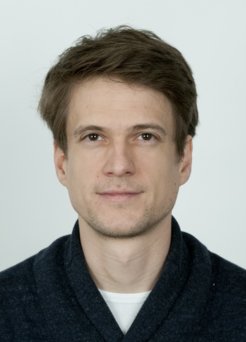Hippocampal Circuit and Code for Cognition Lab (HCCCL)
Max Planck Partner Group

Partner Groups of the Max Planck Society
By establishing Partner Groups, the Max Planck Society supports the international continuation of cooperation of researchers across the globe. The condition for this is that, following a research residency at a Max Planck Institute, top junior scientists (postdocs) return to a leading and appropriately-equipped laboratory in their home country and carry out further research on a subject that is also in the interests of their previous host Institute.
Partner Groups are established for five years.
Biosketch

Attila Keresztes started the Hippocampal Circuit and Code for Cognition Lab at the Research Centre for Natural Sciences, in Budapest, Hungary after concluding his postdoctoral training at the Center for Lifespan Psychology at MPIB in 2018. During his postdoc years, started in 2014, he worked in the Cognitive and Neural Dynamics of Memory Across the Lifespan (ConMem) group led by Markus Werkle-Bergner, Yee Lee Shing, and Myriam Sander. Prior to his postdoc, Attila Keresztes had been trained as an experimental psychologist at Eötvös Loránd University in Budapest, Hungary, and then received his PhD in psychology and cognitive neuroscience from the Department of Cognitive Science at Budapest University of Technology and Economics, Hungary in 2014, under the supervision of Mihály Racsmány.
Cooperation with project groups of the Center for Lifespan Psychology
Within the framework of a Minerva Research Group, this project tracks the life cycle of memories in both mind and brain to understand how aging affects memory representations and performance.
Lifespan Rhythms of Memory and Cognition (RHYME)
The overarching objective of this project is to understand how the dynamic interplay of maturation, personal experiences, and senescence drives and affects plastic changes on neural and behavioral levels across the lifespan.
Selected References
Keresztes, A., Raffington, L., Bender, A. R., Bögl, K., Heim, C., & Shing, Y. L. (2022). Longitudinal developmental trajectories do not follow cross-sectional age associations in hippocampal subfield and memory development. Developmental Cognitive Neuroscience, 54, Article 101085. https://doi.org/10.1016/j.dcn.2022.101085
Sikora-Wachowicz, B., Keresztes, A., Werkle-Bergner, M., Lewandowska, K., Marek, T., & Fafrowicz, M. (2021). False recognitions in short-term memory: Age-differences in neural activity. Brain and Cognition, 151, Article 105728. https://doi.org/10.1016/j.bandc.2021.105728
Keresztes, A., Raffington, L., Bender, A. R., Bögl, K., Heim, C., & Shing, Y. L. (2020). Hair cortisol concentrations are associated with hippocampal subregional volumes in children. Scientific Reports, 10, Article 4865. https://doi.org/10.1038/s41598-020-61131-x

